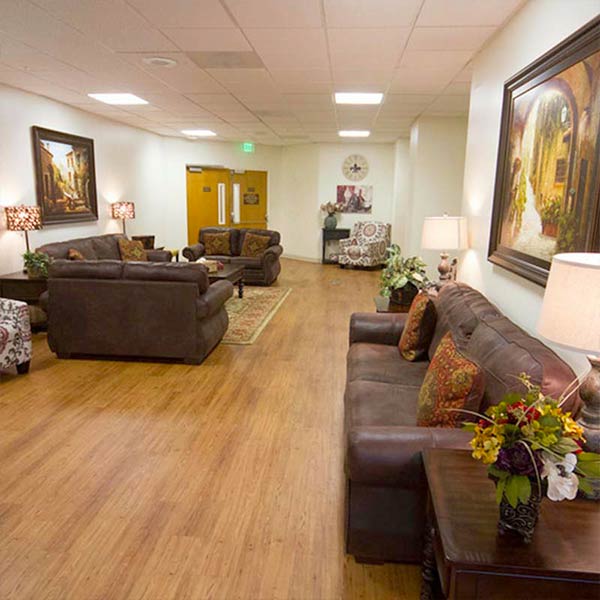Greenleaf Hospital provides effective treatment for men & women struggling with aggression. At Greenleaf, you can learn how to manage your symptoms to take back control.
Teen Aggression Treatment
Understanding the Treatment for Teens with Aggression Disorder
Anger in response to an agitating or infuriating circumstance is a healthy, normal human experience. But when anger as an emotion is activated into aggression as a behavior, problems can result for adults and teens alike. Sometimes, one can enact aggression or harm onto oneself in the form of self-harm or other damaging behaviors. Other times, one can direct aggression towards others in the form of verbal, emotional, or physical abuse.
While we all “lose our temper” from time to time, perhaps saying or doing things we regret in the heat of the moment, aggression becomes a problem when it is chronic and pervasive. A teen who develops a problem managing his or her anger is at risk for engaging in a pattern of aggressive behavior that puts him or herself in danger, and can compromise the wellbeing and safety of others. Teens are known to have high levels of emotionality during a time in life when hormonal fluctuations can result in rapid, albeit developmentally appropriate, mood swings. However, for teens who exhibit chronic violent or aggressive behavior, it is likely that a mental health condition is present that will require professional help to overcome.
Fortunately, help exists for teens who are struggling with aggression in the form of comprehensive treatment at a center that specializes in teen-focused care. Regardless of the etiology of the behavior, impulse control issues and other forms of verbal or physical aggression can be overcome by addressing the underlying causes.
Causes
Causes of Aggressive Behavior
When seeking to understand the reason a teen develops aggressive behavior, experts agree that several factors have shown to increase one’s risk. While no single indicator can signal the certain onset of symptoms, the following factors often contribute to a teen developing the mental or behavioral health conditions that result in aggressive behaviors:
Genetic: Having a first degree relative, such as a brother or mother, who also exhibits chronic aggressive behavior may increase the odds that a teen will respond in kind. Some behaviors are considered heritable traits, especially when linked to mental illnesses which possess a genetic component.
Environmental: Observing aggression in the home may normalize unhealthy behaviors and prompt a teen to see aggression as an appropriate means of coping with stress. This may be due in part to the learned nature of behaviors, meaning that early exposure to aggression may prompt an individual to develop aggression later in life.
Mental Health Disorders: There are certain mental health conditions for which aggression is a predominant symptom, and teens who exhibit aggression in addition to certain other symptoms are likely suffering from a psychiatric illness for which they will require professional treatment. The following list outlines some of the mental health conditions for which aggression is a common symptom for teens:
- Conduct disorder
- Oppositional defiant disorder
- Schizophrenia
- Substance use disorders
- Posttraumatic stress disorder
- Bipolar disorder
- Psychosis
Medications: Certain medications, as well as some illicit substances, have been known to produce aggressive behaviors in teens and in adults. If a teen in your life begins showing aggressive behaviors after ingesting a substance, prescribed or otherwise, it is best to consult a medical professional as soon as possible.
Effects
Effects of Aggressive Behavior
Persistent aggressive behavior will cause a teen to have a myriad of difficulties at home, at school, and in important relationships. The following describes just a few of the many ways that aggression can negatively impact a teen:
- Disciplinary action at school
- Overall decline in one’s physical health
- Development of a problem with drugs and/or alcohol
- Increased need for hospitalization
- Academic failure
- Discord among peers and loved ones
- Development of a mental health condition or conditions
- Inability to adjust to change in a healthy manner
- Interaction with the legal system
- Incarceration
Types of Treatment
Treatment Options for Teens Offered at Greenleaf Behavioral Health Hospital
Without getting to the root cause of the teen’s aggressive behaviors, it will be impossible to illicit long-lasting change in the way the teen regulates emotions and manages impulsivity. Sustained aggression is one way that mental illness manifests, and without seeking treatment for the disorder prompting the behavior, the situation will only worsen over time.
When aggression permeates a young person’s life, and he or she emits hostility in their interactions with others, it will be nearly impossible to forge meaningful bonds with peers, and relationships with loved ones will be incredibly strained. And given the comorbidity of aggressive behaviors and substance abuse, teens who display aggression are at increased risk for damages brought on by chemical dependence.
Fortunately, there are treatment options available to help teens who are suffering due to an inability to monitor their own behavior. Inpatient treatment can be the best option for young people because these types of programs offer comprehensive care for mental illness, medication management, thorough discharge planning, and around the clock supervision. While in inpatient treatment, teens will have access to a variety of tailored therapies designed to help them address the root causes of dysfunctional behaviors, learn valuable coping skills and alternative reactions to aggression. By engaging with an inpatient treatment program, teens will be afforded an individualized plan of care that builds upon their strengths and will help them achieve lasting recovery from aggressive behaviors and any other challenges that may be standing in the way of a healthy, fulfilled life.








